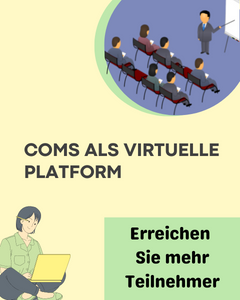Startseite / Konferenzkalender / Mathematik / Neuronale Netze und Künstliche Intelligenz, Maschinelles Lernen / Deutschland
Konferenzen > Mathematik > Neuronale Netze und Künstliche Intelligenz, Maschinelles Lernen > Deutschland
Wählen Sie ein Land aus
Deutschland (12) Griechenland (1) Großbritannien (6) Indien (1) Italien (4) Kanada (9) Kroatien (1) Marokko (1) Niederlande (2) Portugal (1) Spanien (1) Südafrika (1) Türkiye (1) Vereinigte Staaten (4)
Deutschland
1
Dagstuhl-Seminar — Conveying the Essence via Abstraction: From Art to AI
22. Feb 2026 - 27. Feb 2026 • Schloss Dagstuhl, Deutschland
Eintrags-ID:
1670555
Webseite:
2
Dagstuhl-Seminar — Tensor Factorizations Meet Probabilistic Circuits
01. Mär 2026 - 06. Mär 2026 • Schloss Dagstuhl, Deutschland
Eintrags-ID:
1671309
Webseite:
3
Dagstuhl-Seminar — Driver State Modelling: Cognitive and Computational Challenges
22. Mär 2026 - 27. Mär 2026 • Schloss Dagstuhl, Deutschland
Eintrags-ID:
1671303
Webseite:
4
Dagstuhl-Seminar — Causality and Large Language Models: Opportunities to Advance Causal Reasoning
07. Apr 2026 - 10. Apr 2026 • Schloss Dagstuhl, Deutschland
Eintrags-ID:
1671365
Webseite:
5
Dagstuhl-Seminar — Managing Vector Data for Retrieval Augmented Generation: Systems and Algorithms
12. Apr 2026 - 17. Apr 2026 • Schloss Dagstuhl, Deutschland
Eintrags-ID:
1671418
Webseite:
6
Forschungstreffen — Agentic AI for Knowledge Engineering
11. Mai 2026 - 13. Mai 2026 • Schloss Dagstuhl, Deutschland
Eintrags-ID:
1671452
Webseite:
7
Dagstuhl-Seminar — Empowering Climate Science with Spatial AI
17. Mai 2026 - 20. Mai 2026 • Schloss Dagstuhl, Deutschland
Eintrags-ID:
1671516
Webseite:
8
Dagstuhl-Seminar — Knowledge Compilation in Artificial Intelligence, Databases, and Formal Methods
25. Mai 2026 - 29. Mai 2026 • Schloss Dagstuhl, Deutschland
Eintrags-ID:
1671537
Webseite:
9
Dagstuhl-Seminar — Social Intelligence in AI Systems
07. Jun 2026 - 12. Jun 2026 • Schloss Dagstuhl, Deutschland
Eintrags-ID:
1671546
Webseite:
10
EASL school — Artificial Intelligence in Hepatology
26. Jun 2026 - 27. Jun 2026 • Dresden, Deutschland
Eintrags-ID:
1678348
11
Dagstuhl-Seminar — KR Meets XAI: Bridging Symbolic and Neuro-Symbolic AI for True Explainability
05. Jul 2026 - 10. Jul 2026 • Schloss Dagstuhl, Deutschland
Eintrags-ID:
1671614
Webseite:
12
Bad Honnef Physics School — Quantum Machine Learning
16. Aug 2026 - 21. Aug 2026 • Bad Honnef, Deutschland
Eintrags-ID:
1687970
Conference-Service.com stellt der Öffentlichkeit ein Kalendarium wichtiger Konferenzen, Symposien und sonstiger Tagungen im wissenschaftlich-technischen Bereich zur Verfügung. Obwohl das Verzeichnis mit großer Sorgfalt zusammengestellt und ständig aktualisiert wird, weisen wir auf die Möglichkeit von Fehlern ausdrücklich hin. Bitte vergewissern Sie sich immer beim Veranstalter, bevor Sie über die Teilnahme oder Nichtteilnahme an einer Konferenz entscheiden.
Stand vom 19. Dezember 2025



